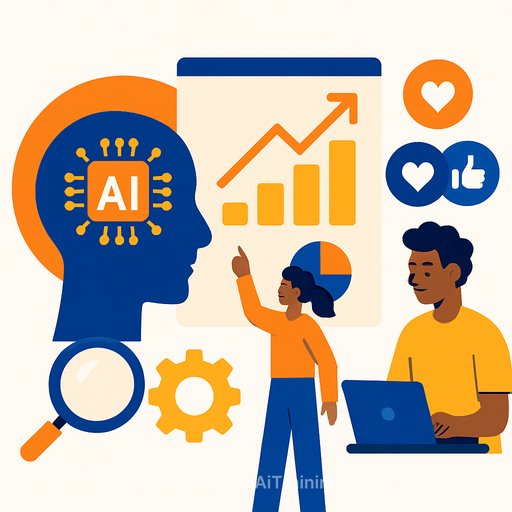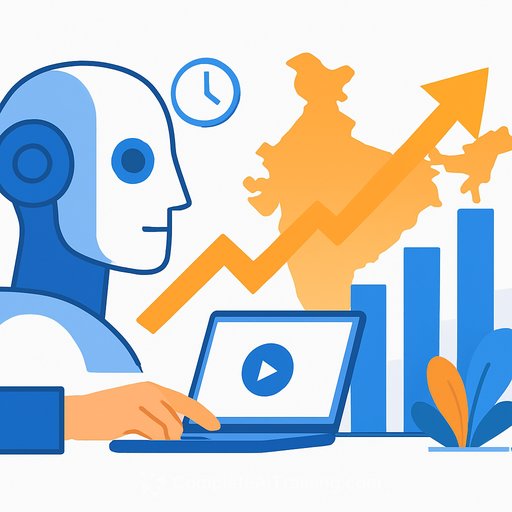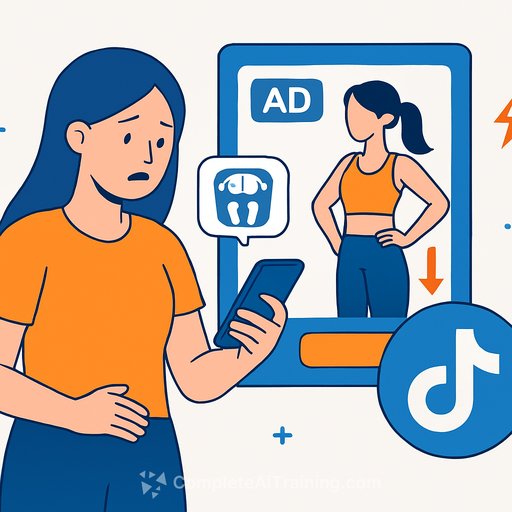Experts Empower Youth and Corporate Professionals with Essential Digital Marketing Skills and Trends at Leading Social Media Conference
The digital marketing field is shifting quickly due to new technology, changing consumer behavior, and AI integration. Marketers in 2025 must adapt to emerging platforms, use AI smartly, and create personalized experiences on tighter budgets. This article highlights five critical areas shaping digital marketing today: social media, AI use, essential skills, search marketing, and content marketing. It offers practical advice to stay competitive in this evolving space.
Social Media: Platforms, Advocacy, and Community Building
Social media remains central to digital marketing, with users averaging over two hours daily across nearly seven platforms. This attention offers brands a chance to engage diverse audiences at scale. Here’s what marketers should focus on in 2025.
The Rise of Threads and BlueSky
As X (formerly Twitter) declines due to engagement and content quality issues, alternatives like Threads and BlueSky are gaining momentum. Threads, Meta’s text-focused platform, now has 275 million users and offers simple, organic content opportunities with future ad monetization potential. BlueSky, created by Jack Dorsey, appeals to those seeking ad-free, niche communities but currently has a smaller user base of 24 million.
Pro tip: Use text-based, humorous, or educational content on Threads to stand out amid video-heavy social feeds.
Employee-Generated Content (EGC)
Brands are increasingly leveraging employee voices to build trust. LinkedIn, expected to surpass 800 million users in 2025, is ideal for authentic behind-the-scenes content. Transparency resonates: 94% of consumers remain loyal to brands that show openness.
Pro tip: Keep employee content natural and unscripted to maintain authenticity and engagement.
Collaborating with Customers
Influencer marketing continues strong, but community-driven content from loyal customers is gaining priority. Brands like REFY foster deeper connections by hosting exclusive events for their community members.
Pro tip: Use private channels like broadcast groups or live content to engage VIP fans with exclusive updates and create a sense of belonging.
AI in Digital Marketing: Opportunities and Challenges
AI is now embedded in marketing tools like social platforms, CRMs, and search engines. While 54% of marketers use AI, effective application requires strategy to avoid burnout and maximize results.
Avoiding AI Fatigue
The pressure to adopt AI tools can overwhelm marketers. Remember, AI handles repetitive tasks, freeing time for creativity rather than replacing jobs. Focus on where AI adds value, like data analysis and automation, without increasing workload.
Pro tip: Audit your processes to identify where AI can streamline operations, allowing you to focus on strategy and creative work.
The Rise of AI Agents
AI agents—software autonomously managing systems to meet goals—are changing marketing. In 2025, AI will move beyond content generation to running entire campaigns, pulling data, generating reports, and optimizing in real time.
Pro tip: Use AI agents for automated reporting and A/B testing to improve campaign performance efficiently.
AI in Ecommerce
AI personalizes ecommerce experiences and streamlines operations through tailored recommendations, chatbots, dynamic pricing, visual search, and voice commerce. These tools improve customer satisfaction and boost conversions.
Pro tip: Implement AI-powered chatbots to address inquiries and guide purchases, enhancing user experience.
AI-Powered Advertising
Machine learning enhances ad campaigns via platforms like Meta’s Advantage Plus and Google’s Performance Max. These optimize targeting and bidding while providing visibility into ad spend, enabling dynamic budget adjustments.
Pro tip: Analyze ad performance with AI and shift budgets toward high-converting channels such as Google Maps, reducing spend on less effective platforms like Gmail.
Digital Marketing Skills: Beyond Technical Expertise
As AI automates routine work, marketers need a mix of technical skills, soft skills, and business understanding.
The Value of Soft Skills
Collaborative problem-solving leads marketing skills growth, with a 138% increase since 2021. Skills like active listening, leadership, and teamwork give marketers an edge.
Pro tip: Develop soft skills through workshops, mentoring, or leadership training to complement your technical abilities.
Refining AI Skills
AI strategy is a top skill gap for CMOs. Marketers should master tools relevant to their roles, from ChatGPT for content research to analytics platforms for campaign insights.
Pro tip: Follow AI experts on LinkedIn and consider advanced courses to deepen your AI tool knowledge. Explore Complete AI Training’s latest courses for upskilling options.
Business Acumen
Understanding finance and strategy is crucial. Marketers focused only on tactics risk being automated out. Learning business fundamentals helps align marketing with overall growth.
Pro tip: Study business metrics and growth strategies to contribute meaningfully to your organization’s success.
Search Marketing: Adapting to New Behaviors
Traditional search traffic is predicted to decline by 25% by 2026. Marketers must adjust to how consumers search today.
The Rise of Social Search
Gen Z and others increasingly use TikTok and Instagram for search queries. Generative AI conversational searches allow natural language queries, improving user experience.
Pro tip: Optimize social profiles with keywords and create content that earns links to boost social SEO.
Voice Search Optimization
Over half of shoppers use voice search for research, and 22% complete purchases via voice. Optimizing for conversational, local, and long-tail keywords is essential.
Pro tip: Create content in a conversational style that matches voice search patterns for better discoverability.
Generative Engine Optimization (GEO)
GEO focuses on optimizing content for AI-driven search results like Google’s AI Overviews. With 79% of consumers expected to use AI-enhanced search by 2026, GEO is critical to visibility.
Pro tip: Research how AI Overviews work and adjust your content to perform well in generative search results.
Content Marketing: Quality and Relevance
Content continues to engage audiences, but success in 2025 requires strategic focus.
Revitalizing Older Content
Refreshing existing content can increase traffic by over 100%. Adding updated data, visuals, or videos keeps content relevant and engaging.
Pro tip: Audit your content library and update underperforming assets with fresh research and visuals.
Combining Human and AI Content
AI tools speed up content creation, but half of consumers recognize AI-generated content and engage less with it. Combining AI for research and drafting with human creativity ensures quality and authenticity.
Pro tip: Use AI for outlines and research, then add your insights and original data to keep content authentic and aligned with Google’s E-E-A-T standards.
Targeting Gen Alpha
Born after 2010, Gen Alpha values diversity, sustainability, and tech. Gamified and community-focused content resonates with this socially aware group.
Pro tip: Incorporate gamification elements to engage Gen Alpha and build loyalty.
Conclusion
Digital marketing in 2025 demands adapting to new platforms like Threads and BlueSky, using AI agents to boost efficiency, and sharpening soft skills alongside technical know-how. Updating older content and engaging Gen Alpha with authentic, gamified experiences will increase impact. Staying flexible—experimenting with AI tools, refining skills, and aligning marketing with business goals—is key to building meaningful connections and driving growth in this AI-driven environment.
Your membership also unlocks:






